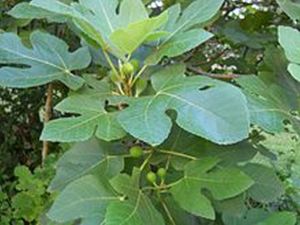“We’ve worked the ‘Al Aqsa is in danger’ trope past death, so we’re looking to develop more robust fig leaves to provide a semblance of a pretext for trying to kill as many Jews as possible.”
 Iata, near Hebron, October 23 – Horticultural breeders are hard at work in this hillside village, trying to produce a variety of fig tree with leaves big enough to help provide rhetorical cover for Palestinian violence.
Iata, near Hebron, October 23 – Horticultural breeders are hard at work in this hillside village, trying to produce a variety of fig tree with leaves big enough to help provide rhetorical cover for Palestinian violence.
Figs have grown in this region for thousands of years, with sources as ancient as the book of Genesis mentioning them. But the size of the plant’s foliage has remained relatively constant since then, with modern fig leaves bigger than their ancient ancestors by only a modest amount. In recent times, however, the need for bigger specimens has grown exponentially as Palestinians and their allies look for an increased capacity to provide legitimacy for increasingly egregious acts of terrorism against Jews.
“Back in the day it was perfectly reasonable to defend Palestinian attacks on Israel as acts of resistance,” said Ali Te’ena, who cultivates figs, pomegranates, and grapes. “But as a fig leaf, that justification has worn thin, since Palestinians have had ample opportunity to achieve national determination by other means, and to build a society around something other than killing Jews. At this point we’ve also worked the ‘Al Aqsa is in danger’ trope past death, so we’re looking to develop more robust fig leaves to provide a semblance of a pretext for trying to kill as many Jews as possible.”
Te’ena has been trying to breed fig trees with larger leaves for several seasons, so far without success. The first eight specimens produced the familiar fig-leaves of “settlements” and “1967,” which offered nothing novel or more credible, given the arboreal dubiousness of those leaves in the context of attacks on Jews who have little to do with either. A promising second batch at first looked different, but in the end produced age-old stereotypes that, while they could theoretically be used to justify action against certain Jews, offered precious little cover against the charge of antisemitism unconvincingly dressed up as anti-Zionism.
“We’ll hit on the magic formula soon,” promised Te’ena’s sister, Ayma Laiya, clutching two saplings. “If you look closely, you’ll see the leaves on this one have developed their shape earlier than usual, which could mean a better kind of growth. Right now they look just like the transparent ‘executed in cold blood’ fig leaves we’ve seen before, but with the right treatment we might see them develop into something other than just another iteration of ‘We idolize and want to emulate a man who spent years of his life agitating for the Germans to wipe out the Jews’.”




